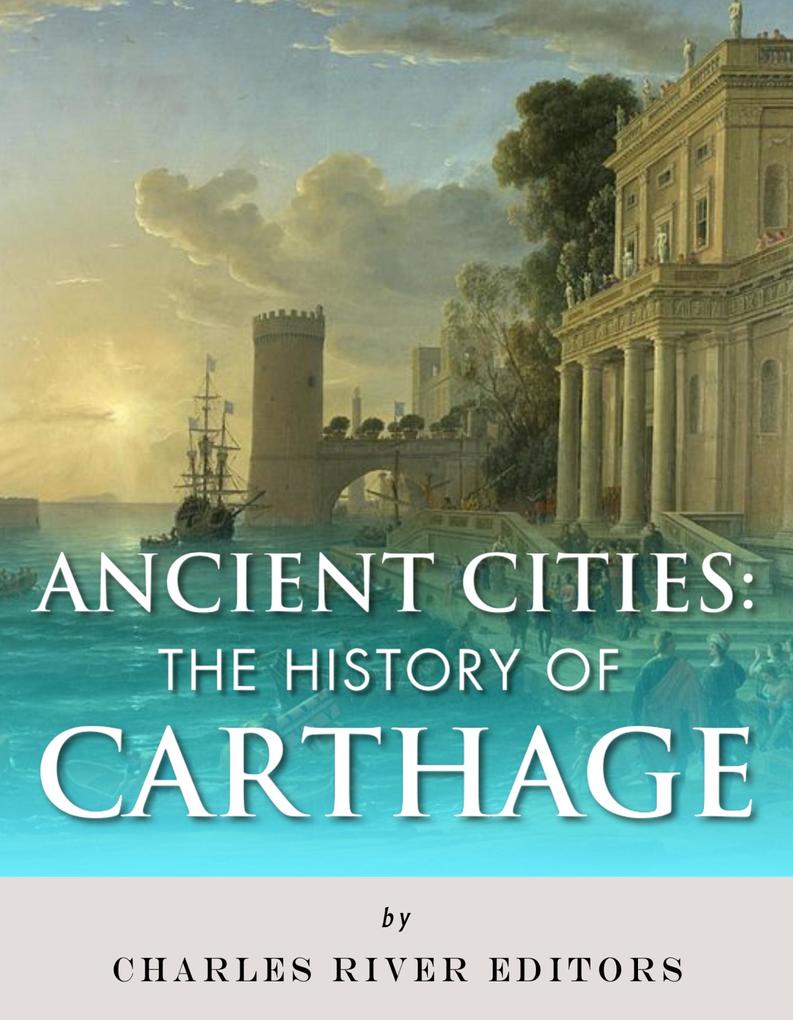
Sofort lieferbar (Download)
Carthage is, without a doubt, one of the great ancient civilizations. At its peak, the wealthy Carthaginian empire dominated the Mediterranean against the likes of Greece and Rome, with commercial enterprises and influence stretching from Spain to Turkey, and at several points in history it had a very real chance of replacing the fledgling Roman empire or the failing Greek poleis (city-states) altogether as master of the Mediterranean. Although Carthage by far preferred to exert economic pressure and influence before resorting to direct military power (and even went so far as to rely primarily on mercenary armies paid with its vast wealth for much of its history, it nonetheless produced a number of outstanding generals, from the likes of Hanno Magnus to, of course, the great bogeyman of Roman nightmares himself: Hannibal. Through clever use of force projection, both by maintaining a large and very active navy to dominate the seaborne routes along which most of their vast trading empire's lifeblood flowed and by paying allies with gold or recruiting mercenary armies to fight for them, Carthage was able to go from a minor Phoenician settlement to one of the most powerful trading empires of antiquity.
However, the Carthaginians' foreign policy had one fatal flaw; they had a knack over the centuries of picking the worst enemies they could possibly enter into conflict with. The first serious clash of civilizations which Carthage was involved with was Greece, which rapidly became hostile when the Carthaginians began pushing to spread their influence towards the colonies known as Magna Graecia ("Great Greece"), which had been established in southern Italy and Sicily by several Greek poleis. Much later, Carthage eventually became embroiled in a long series of costly and ultimately unsuccessful wars in Sicily, but they were able to avoid an all-out confrontation with the Greeks mostly because Carthage's spread across the Mediterranean coincided with the Greeks' struggle for their very survival against Darius and Xerxes' Persian invasions. After those, the Peloponnesian War split Greece between Sparta and Athens as the two great cities battled each other for supremacy. Hostilities might have resumed later, but the Greeks were swallowed up by the burgeoning empire of Alexander the Great. The Macedonian himself, after his headlong push to the east had led him onto the plains of India itself, had planned to lead an army West along the coast of North Africa and take Carthage, but he died mysteriously before his dream could ever come to fruition. Thus, more by luck than by design, Carthage had survived a scrap with two of the greatest powers in the Mediterranean.
Unfortunately for the Carthaginians, it would not endure the next major confrontation. Certain foreign policy decisions led to continuing enmity between Carthage and the burgeoning power of Rome, and what followed was a series of wars which turned from a battle for Mediterranean hegemony into an all-out struggle for survival, with Hannibal crossing the Alps and threatening Rome itself during the Second Punic War and Roman legions smashing Carthage to rubble at the end of the Third Punic War. As legend has it, the Romans literally salted the ground upon which Carthage stood to ensure its destruction once and for all.
Despite having a major influence on the Mediterranean for nearly five centuries, little evidence of Carthage's past might survives. The city itself was reduced virtually to nothing by the Romans, who sought to erase all physical evidence of its existence, and though its ruins have been excavated they have not provided anywhere near the wealth of archaeological items or evidence as ancient locations like Rome, Athens, Syracuse, or even Troy. Today, Carthage is a largely unremarkable suburb of the city of Tunis.
Produktdetails
Erscheinungsdatum
02. Mai 2025
Sprache
englisch
Ausgabe
Digitales Original
Seitenanzahl
39
Dateigröße
2,89 MB
Herausgegeben von
Charles River Editors
Verlag/Hersteller
Kopierschutz
ohne Kopierschutz
Family Sharing
Ja
Produktart
EBOOK
Dateiformat
EPUB
ISBN
9781475332490
Entdecken Sie mehr
Bewertungen
0 Bewertungen
Es wurden noch keine Bewertungen abgegeben. Schreiben Sie die erste Bewertung zu "Ancient Cities" und helfen Sie damit anderen bei der Kaufentscheidung.









